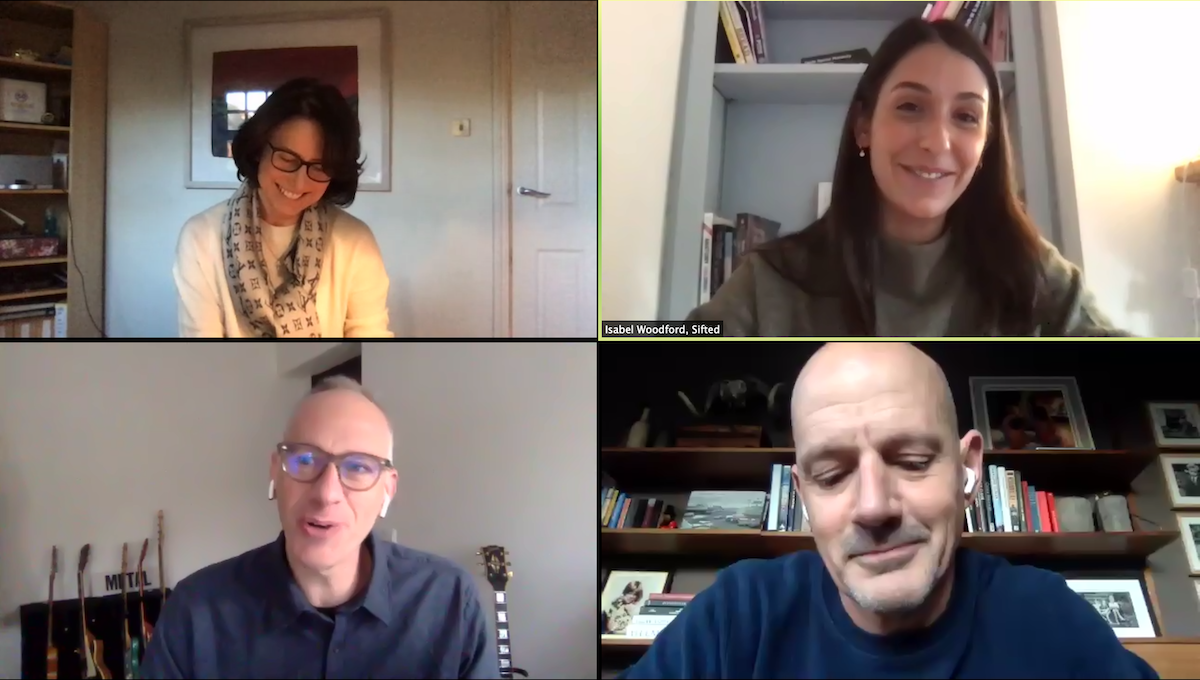Fintechs have played it safe this year. Amid the uncertainty of lockdown and a potential retreat of capital, we saw fintechs pull out of international markets, downsize their teams, accept valuation cuts and put product launches on hold.
But the situation today seems less gloomy than it did in March, with the sector slowly adjusting to a new ‘normal’ — buoyed by VCs’ continued confidence in the sector and reports of strong revenue growth in areas.
So six months into the crisis, how should fintechs go about growing while preserving precious capital? Beyond slashing costs, how can fintechs refocus their spending to capitalise on the current landscape?
Last week, Sifted hosted a panel to answer this question, led by:
- Jos White, general partner at VC firm Notion Capital
- Fiona Tee, chief financial officer at payments fintech Currencycloud
- David Rosenberg, head of marketing, business development and private equity EMEA at software company Oracle NetSuite
Here are their main takeaways:
Pump money into the product team
Investing in developing your product is key at this point.
Notion’s Jos White says this is particularly true of companies whose product is live and has reasonable customer acquisition costs (CAC). “If your CAC is low and you’re seeing a CAC payback time within 12 months, then I would absolutely continue to spend.”
For startups that haven’t yet finalised their ‘go-to-market’ strategy, then fast-tracking the product launch makes sense, White noted.
For smaller companies with a diverse product offering, and without a solid cash runway, David Rosenberg recommends refocusing spending on their core product: “If you’re doing product development, make sure it’s the product that people are going to buy. It’s not the time to spend money on another project; go to your core. The best thing you can do is make more money.”
It’s not the time to spend money on another project; go to your core. The best thing you can do is make more money.
Fiona Tee agrees, explaining that at Currencycloud this meant only making cuts that wouldn’t affect the product: “We didn’t want our cuts to affect things like the product roadmap, account management and customer operations, or any of the things that were enabling our customers to enjoy the service.”
It’s also worth thinking about spending money to boost your distribution channels, says Rosenberg. “The more channels by which you can sell, the more defensibility you gain — which also leads into more distribution, which then leads to growth.”
Look into new revenue streams — but with a clear goal in mind
For those with a decent runway, now could also be a good time to invest in new revenue streams.
That also applies to expanding into new geographies. While this seemed inconceivable in March, founders can now make a calculated risk about whether to invest in a new market — as Currencycloud has done, says Tee.
“Initially we paused and thought, ‘I’m not sure how we do this if we can’t go there’. And then we realised, we’ve adopted different ways of thinking [and solutions]. So for us whether it’s new business models or new segments, or new geographies, we’re certainly going to be going there.”

Don’t be shy about M&A
The focus six months ago was on conserving cash.
But White believes it’s now a good time for the strongest startups to be looking into acquisitions and ‘buying to build.’
“We are seeing a lot of our companies look more actively into the M&A market, because if you’ve got cash on the balance sheet that is a competitive advantage,” he says — weaker companies are “quite open” to a sale offer now.
Tee also noted that Currencycloud is looking closely at buying companies for the first time, where it makes strategic sense. She explained it’s still doable in a remote setting and therefore an investment that companies should consider.
...if you’ve got cash on the balance sheet that is a competitive advantage.
Buying a company may even be a better alternative to expanding internationally, in the current climate, she added.
Look out for red flags
Aside from spending, what other things must fintechs keep an eye on to avoid failure?
Above all, Tee advises founders to constantly stay on top of changes in the market, including their competitors’ responses and consumer appetites.
“[Fintechs] go down... because either what you’re trying to sell in the market isn’t there like you thought it was, or the market’s changed, so make sure you know your market.”
When it comes to investment, White says that investors love companies that have “high margins, high growth and high visibility in terms of customer contracts, customer retention and customer growth.” Not having these, according to White, can be extremely damaging to landing deals and growing your business.
Typically, it’s customer relationship management and some degree of finance. Those are the two things you need to survive.
Additionally, Rosenberg recommends that fintechs get a good business management software tool to manage their finances and their relationships: “A business management system will help you understand what you need to put in place for your company. Typically, it’s customer relationship management (CRM) and some degree of finance. Those are the two things you need to survive."
White also says that another sign of failure is when customer acquisition costs become too high, and the customer response to your product or service becomes transactional: “You may have customers coming in and it looks like you’re growing, but actually it’s a leaky bucket and they’re falling out the other side.”
Top takeaways
To close off, each panellist gave one key piece of advice to leave the audience with.
Rosenberg crowned getting premium customers as the key to survival: “It needs to be a focus every day how you get people paying for your product.”
He also warns that companies which are fundraising should avoid putting exit scenarios on their pitch decks when dealing with US investors: “[European] companies get wrapped around the axle on this, and you shouldn’t be thinking this way, it will not be successful.”
Never lose a laser focus on what you have to do to secure the next funding milestone. Love your customers, don’t lose them, keep them, grow them.
White recommends shifting your thinking from defence mode to offence mode: “Be open to making that switch from defensively dealing with a crisis to offensively thinking, ‘how has the landscape changed, where are my opportunities now and how can I take advantage of the fact that I’ve navigated through this [pandemic] well and I can start to get aggressive in the way I build my business’.”
Finally, Tee offers some classic CFO guidance: “Never lose a laser focus on what you have to do to secure the next funding milestone. Love your customers, don’t lose them, keep them, grow them. They’ll make a massive difference to that cash flow.”
This Sifted Talks was proudly supported by Oracle NetSuite. Quotes were lightly edited for length and clarity.


